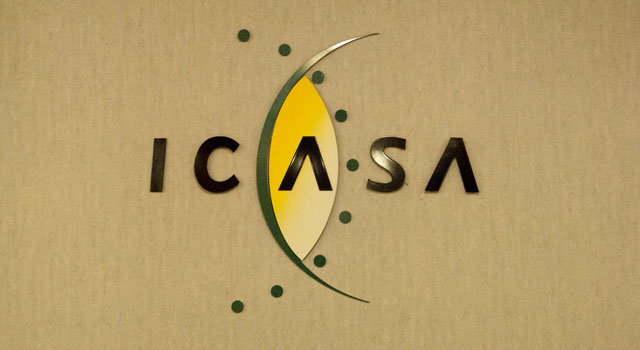 Bewilderment. That’s the word that best described the look on the faces of mobile communications industry executives crammed into a courtroom on the 11th floor of the high court in downtown Johannesburg on Monday afternoon as they listened to judge Haseena Mayat hand down her decision in a key industry battle.
Bewilderment. That’s the word that best described the look on the faces of mobile communications industry executives crammed into a courtroom on the 11th floor of the high court in downtown Johannesburg on Monday afternoon as they listened to judge Haseena Mayat hand down her decision in a key industry battle.
Mayat was reading highlights of her judgment in the legal showdown between MTN and Vodacom and industry regulator Icasa over call termination rates, the fees operators charge each other to carry calls between their networks. Icasa is reducing the rates, and introducing rules that favour smaller players financially, in the hopes of fostering competition and driving down retail prices.
MTN and Vodacom asked for a final order blocking implementation of the rates. They won it, with the court finding that Icasa’s 2014 regulations governing call termination rates were “unlawful and invalid”. Then Mayat said something unexpected, drawing puzzled looks from many in the courtroom: even though the regulations were unlawful, she would suspend her decision for six months so that the rate cut would take effect as Icasa had planned. Doing so was in the “public interest”, Mayat said, explaining that she was empowered, legally, to act at her discretion in this regard.
Despite this unexpected twist, the outcome was damning for Icasa: the two operators proved their legal arguments and showed that the regulatory agency had failed to do its job. Icasa got lucky.
The regulator, which was quick to trumpet the outcome as a victory for consumers (it’s not clear at all that it is), had not taken into account the costs incurred by operators in terminating phone calls and the wholesale prices it had set were “irrational and arbitrary”.
Instead of beating its chest, claiming some sort of victory, Icasa should reflect on what the court’s decision really means. The judgment again raises serious questions about its ability to meet its mandate of regulating in the public interest. Because of a faulty regulation-making process, it had to dig deep into its pockets — ultimately using taxpayers’ money to hire experienced and expensive senior counsel — to fight a court battle that may not have been necessary if it had simply done its job properly in the first place.
Icasa can thank its lucky stars that the judge decided to use her discretion to implement the rates anyway for a limited period. It was able to use that decision to save face, even though the court’s findings were very much against it. It now has six months to craft new regulations, ensuring this time that they comply with the law.
In this interim period, the court’s decision has, unfortunately, left the mobile communications industry in a state of flux. The judgment makes it harder for smaller operators to cut their retail rates and to force a fresh industry-wide price war. Would they want to cut prices if they’ll simply have to put them up again in six months’ time? After all, they don’t know what the next set of regulations will say.

This uncertainty will make it difficult for smaller players to confirm their business plans beyond October, said Cell C acting CEO Jose Dos Santos shortly after the judgment was handed down. “It also negatively impacts on the smaller operators’ ability to bring down prices to ensure all South Africans have access to affordable communications,” he said.
One hopes that Icasa will now review what went so badly wrong with its own processes that a high court judge felt justified in handing down a final (not an interim) order against it. It must ask itself the hard questions. Parliament’s portfolio committee on communications, which has oversight, should also probe the matter.
The authority must then move swiftly to introduce new regulations that will stand up to legal scrutiny. It doesn’t have much time. Vodacom and MTN must, of course, also come to the party, opening their books to Icasa so that the agency can determine future termination rates based on the true costs of terminating a call. It would be bad news for everyone involved, including consumers, if this matter had to go back to court again.
- Duncan McLeod is editor of TechCentral. Find him on Twitter
- This column was first published in the Sunday Times




